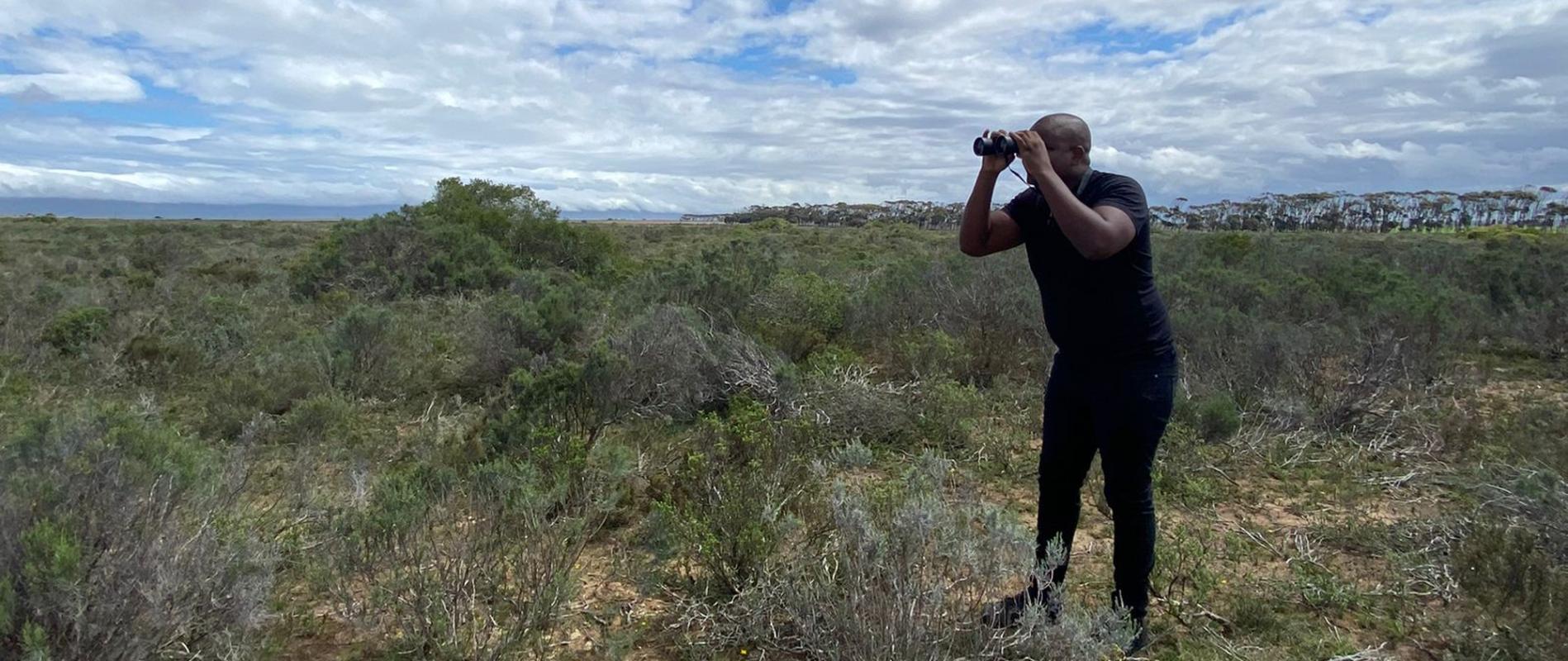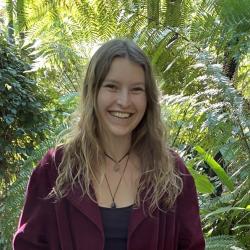
AWEI into the wild!
23 Jun 2023
At the beginning of March 2023, the AWEI Team had the amazing privilege of exploring the naturally beautiful landscape of Witsand, Western Cape, South Africa. The trip aimed to undertake a pilot landscape assessment for potential wildlife enterprises.
For those unacquainted with the serene coastal town, Witsand is situated on the coast southeast of Cape Town, with 300 permanent residents. It is a renowned salt-water fishing and kite-surfing destination with a high concentration of Southern Right Whales. It also has abundant bird life, an indigenous floral kingdom, and an unexplored tourism potential, as the town has few accommodation options. With the Langeberg mountain range to the North and the Indian Ocean to the South, the Witsand area is perfect for flourishing Cape Fynbos and Renosterveld.
Witsand is within the Cape Floristic Region (CFR), world-renowned for its unique flora, which includes an estimated 9,000 species of vascular plants, most of which are indigenous to the region. This makes it one of the most botanically diverse areas on the globe. The CFR contains a variety of vegetation types, including Fynbos and Renosterveld. This vegetation type is dominated by a grey-coloured plant known as renosterbos (directly translated to rhino bush). There are few renosterveld endemics, with many of the species also appearing in fynbos. The Fynbos Biome is made up of fynbos, renosterveld, and dtrandveld. These characteristics make areas such as Witsand extremely important due to their irreplaceable uniqueness and extremely important to biodiversity conservation.
With wildlife enterprise in mind, AWEI set out to pilot a baseline assessment of the potential of such a biologically diverse landscape for sustainable use and community engagement. We focused on a well-preserved farm that borders the South African coastline, featuring areas of fynbos and renosterveld hills and valleys, as well as dune vegetation. The farm comprises 1,000 hectares of natural cape coastal vegetation, with surrounding farms compromising mainly on livestock and agricultural farming. Our focal farm (nicknamed Moodie’s Farm) and two other farms in Witsand were donated to the University of Stellenbosch in the 1970s. Since then, the property has been utilized for various uses, including livestock, crops, wildlife conservation, and, of course, field research for the Faculty of AgriSciences.
AWEI also explored the wildlife enterprise potential for the Moodie’s. We piloted a rapid area assessment as a first step in understanding the potential of the landscape – its ecological status and socioeconomic status of the Witsand area. With this objective, we headed into the fynbos and renosterveld bush, collected soil samples, identified flora and fauna, and engaged with local stakeholders.
According to our assessment, the area contains over 50 wild plant species, a limited number of wild animals (mostly antelope and small mammals), over 120 bird species (many of which are endemic to the region), and a variety of reptiles and amphibians. Moodie’s is also home to the rare Brenton Blue Butterfly.
This field trip was a first step in identifying a landscape's ecological status and uses and the potential for community engagement. Following such a baseline assessment, a second phase would be to identify wildlife enterprise potential – scaling up existing enterprises and establishing new ones. . Based on the results of this investigation, a third phase might be to suggest a wildlife economy development strategy for the area.
Our aim for this field trip was to pilot a rapid baseline assessment of a landscape for wildlife enterprise potential. As landscapes are complex, the experience taught us that we need to develop a holistic framework for such assessments and assemble a multidisciplinary team that can look at the landscapes, the communities, the infrastructure, and the economy to identify opportunities for wildlife enterprise. It it is safe to say that this journey into the wild is the start of an exciting programme of impactful research.
-

Ms Savanna Strauss
Junior Operational Officer (2022-2023)
We support the free flow of information. Please share:
More content
-

Leveraging free trade to boost Africa’s wildlife economies through wild-harvested products
Dr Wiseman NdlovuThe intra-Africa trade of wild products presents a unique intersection of economic opportunity and environmental conservation. With the...
2024Research -

Insights from the African Wildlife Economy Colloquium
Klarine SchutteThe inaugural African Wildlife Economy Colloquium, held from 4–6 November at Stellenbosch University, brought together a diverse group…
Articles -

Drivers of hunting and photographic tourism income to communal conservancies in Namibia
Mr Joseph Goergen …Hunting and photographic tourism provide ecosystem services that can facilitate conservation. Understanding factors influencing how tourism industries generate...
2024Research -

SANParks Vision 2040: A New Era for Conservation in South Africa
Ms Emily TaylorReimagining Conservation: SANParks' Vision 2040
South African National Parks (SANParks) has unveiled its ambitious Vision 2040, a…
Articles -

In defence of wild meat’s place at the table
Tim VernimmenQ&A — Conservation scientist E.J. Milner-Gulland
Sustainable and safe consumption of wildlife is possible, and important for those…
Articles -

The diverse socioeconomic contributions of wildlife ranching
Candice Denner…The diverse socioeconomic contributions of wildlife ranching are increasingly recognized as a vital element of sustainable development, particularly...
2024Research -

A conflict of visions: Ideas shaping wildlife trade policy toward African megafauna
Mr Michael 't Sas-Rolfes…The issue of wildlife trade is a major concern for the conservation of African megafauna, such as elephants...
2024Research -

Barriers to the Participation of the Traditional Leadership Institution in Promoting Rural Agricultural Development
Dr Wiseman Ndlovu…The Traditional Leadership Institution (TLI) is constitutionally recognised to promote rural development in South Africa. It works with...
2022Research -

Elephant in the Room - Why a trophy hunting ban would hurt conservation and development
Prof Francis Vorhies“Trophy hunting, if well managed, conserves wild species and habitats and enhances livelihoods in rural communities.” - Dr...
2024Briefs
Get updates by email
Through impactful research, stakeholder engagement, and professional development, AWEI is supporting the wildlife economy across Africa. Please subscribe for occasional updates on our work and forthcoming events.
Sign up for a quarterly dose of AWEI insights
In a complex and changing world, AWEI generates strategic ideas, conducts independent analysis on wildlife economies, and collaborates with global scholar-practitioners to provide training and expertise for biodiversity conservation, climate resilience, and inclusive economic opportunities in Africa.
